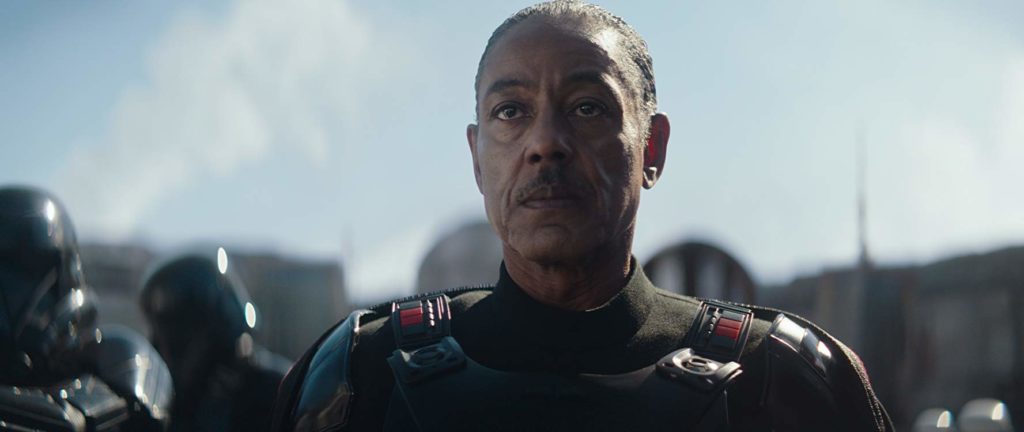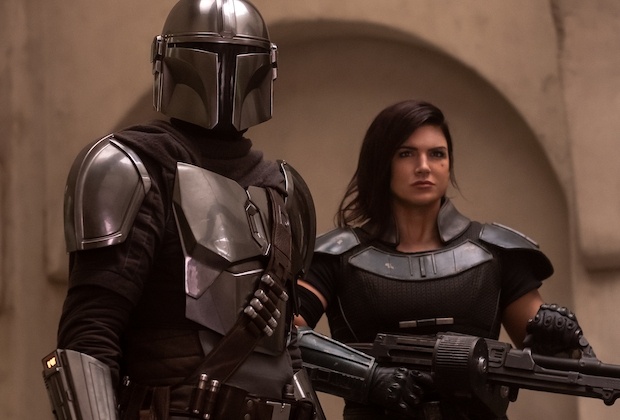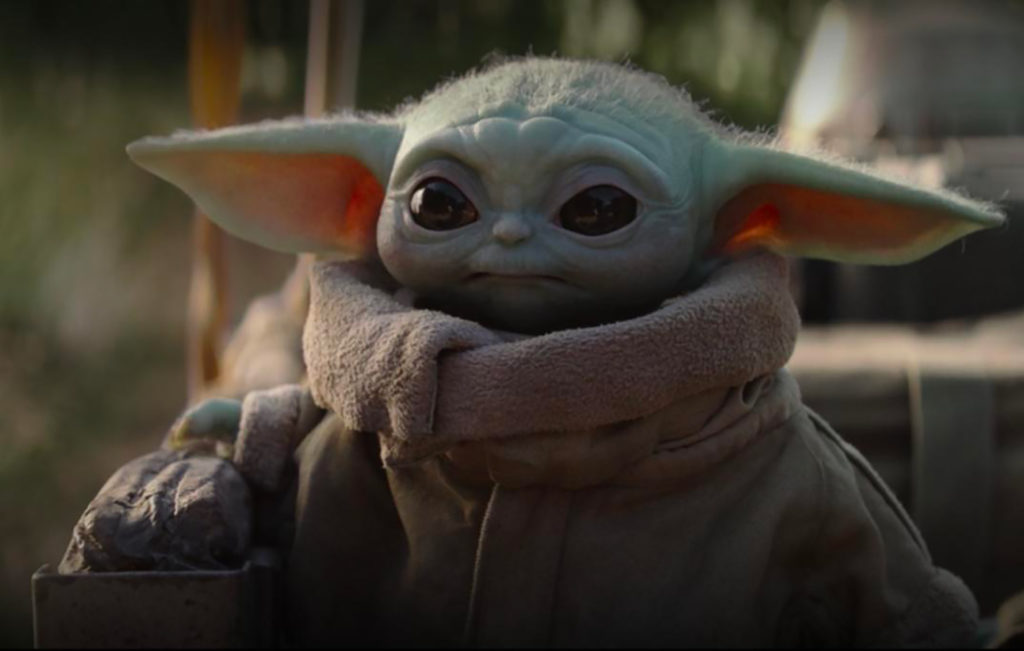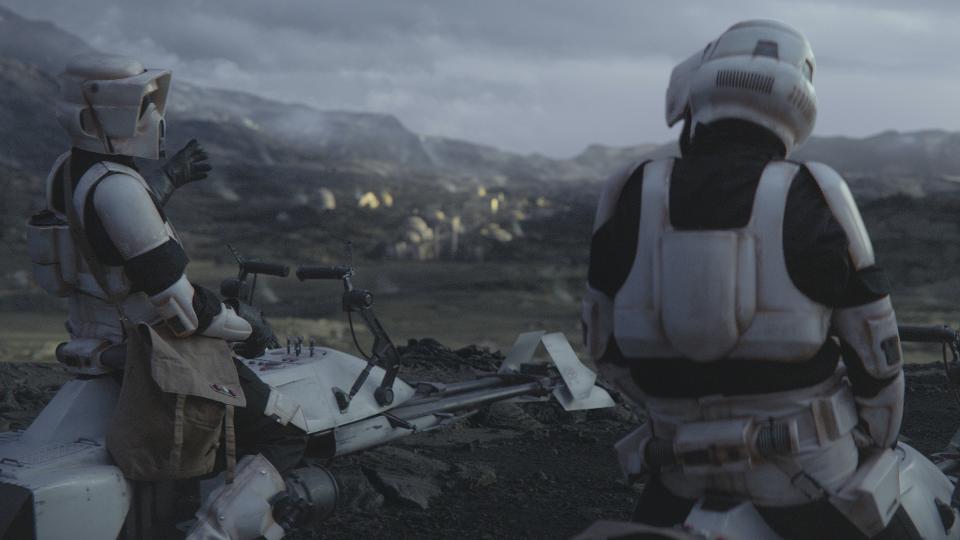While the new trilogy was akin to Anakin in mostly being a disappointment, The Mandalorian is more like Luke in providing a New Hope to the series.
If you still haven’t seen The Mandalorian yet you really should watch it. It’s hands down the best thing Star Wars has put out in a very long time — perfectly blending loveable characters, budgeted adventure, and childlike nostalgia. Atop of this, it has Jon Favreau calling the shots (Iron Man, The Jungle Book) and is Disney+ flagship series, meaning it’s likely going to be here for a little while.
In the final episode of 2019’s TV Talk, we talk about The Mandalorian Season One, why you should watch, our favorite parts (minute 6), and some of the heavy lore within (minute 24). The first six minutes of this podcast are spoiler-free.
Set a few years after Return of The Jedi (The Original Trilogy), the story follows a lone Mandalorian Bounty Hunter in the outer rim territories just trying to get by, whose handling of his latest mark, is a lot more than his usually grey moral compass can handle.
Soon finding himself on the run, Mando, as his friends call him, spends the entire season encountering new (to us at least) imperial menaces of the old empire, while also having his fair share of scrapes against new aliens and bestial types of space monsters. All while befriending new allies, rekindling old friendships, and attending to small-scale epic adventures — striving to keep ‘it’ safe while preserving his Mandalorian ways.
The Mandalorian also features a cast of the most talented actors in television and movies, with Pedro Pascal (Game of Thrones, Narcos), Giancarlo Esposito (Breaking Bad), Gina Carano (Deadpool), Carl Weathers (Rocky), and Taika Waititi (Thor: Ragnarok).

And if that’s still not enough reason consider this:
The Mandalorian, along with The Witcher (whose first season I half-recapped earlier) are the most popular watched and talked about Television series of 2019.
Not Game of Thrones. And Not Mr. Robot’s Final Season. Which were the two most game-changing TV series in the past five years, both of which, have just ended.
Let that sink in.

The Mandalorian’s Story (Spoilers Ahead)
One of the best things about the Mandalorian series is that it scales down its story. Stripping Star Wars down from its pizzazz and more bombastic elements the past few movies, such as death star-like empowered bases and evil Empire forces conscripting the galaxy. The show brings the universe back to its roots, providing a simpler and more intimate story. One focused on characters and for once, not the fate of the galaxy. Thus, providing a nice breather to fans of the franchise.
As such, characters featured in The Mandalorian tell a tale, not of good versus evil but rather three-dimensional people. Survivors with violent and less-than-stellar histories, who’ve been a part of the longstanding wars throughout the galaxy. Victims of the powers that be never given a voice until now.
What’s powerful about the choices in the story is that the heroes are not necessarily good, but are people who none-the-less, choose to do the right thing. Mando, being the prime example.

One of the last warriors in a dying culture, Mando chooses to preserve life again-and-again. Showing that he cares not only about being a type of surrogate father to the child — one willing to protect him at all costs — but also, that he cares about the lives of innocents. Particularly, his friends.
In episode 6, Mando spares his old friends that betrayed him in the prison escapade. This despite being backstabbed and being left to die in lieu of them by the former Rebel Alliance. In episode 4, Mando and Cara Dune not only saved an entire village from being destroyed but also passed on a potential life of happiness and settling down with Omera (Julia Jones) to keep his child safe. We’ve also seen signs of empathy, forgiving Greef Karga (Carl Weathers) for betraying him earlier in episode 3 of the season and even providing second chances and hesitation to kill with those who betrayed him such as Toro Talican (Jake Cannavale) and Fennec Shand (Ming-Na Wen) in episode 5.
Despite hardships and loss, we’ve seen Mando time and time again protect the child first and always.

The Battles Matter in Smaller Scaled Stories
One of the nicer elements about the battles within the show is that most are small skirmishes often shot in epic proportions. Doing something Star Wars hasn’t done well since Empire Strikes Back: utilizing cinematography economically.
We see Mando in shootouts behind cover. Fire flamethrowers and grappling hooks against creatures. Ride jetpacks and fire Gatling lasers not in epic battles determining the fate of the galaxy but in shootouts gone awry. In blown out of proportion battles for survival.
Because for something as gritty as Star Wars, you really don’t need to go as crazy as the new trilogy has in terms of the widescale battles. Where every battle is littered with Blaster Bolts and random CGI details that often feel neglected and forgetful. Let alone illogical, like featuring a calvary of alien mounts charging into a space battle against a battlecruiser like in the last movie…
There are no battles in the Mandalorian where the entire rebel alliance gets decimated (The Last Jedi). Nor are there moments where large standing armies are conjured/called-in from out of nowhere, only to be decimated with waves upon waves of force lightning (Rise of Skywalker).
Instead, the casualties are more heartfelt in The Mandalorian because each episode takes its time to develop the characters and establish the cultures. Creating a longstanding narrative where the people aren’t just faceless victims lost in a cause, but villagers, ex-soldiers, prisoners, and even redemptive androids. Smaller in scale and thus more critical with the character’s decisions.
There are no political allegiances in The Mandalorian. Just people getting by to survive.
Where The New Trilogy Fails Mandalorian succeeds
Where the new trilogy seems to fail the Mandalorian is for the better. Unlike the Jedi/Sith and Empire/Rebels who resemble good and evil, the world of the Mandalorian is simple. A man on a mission to keep a child safe.
Yes, he’s a Mandalorian warrior with impervious Baskar armor. Yes, it would be nice to have more money to survive. Until then, Mando takes on missions, avoids the bad guys hunting baby Yoda, and occasionally, connects with friends to resolve longstanding plot issues.
No evil empire of good versus bad. No Jedi philosophy. Just a story about a Mandalorian getting by, which I think, is a down to earth and more in-tune with today’s culture. And may be formulaic for sure but very unpredictable in that we can’t always tell people’s motivations.
What’s surprising, is that the show is so good that unlike the new Star Wars trilogy, not many fans are complaining about the series in a negative way. In fact, its rather uniting Star Wars fans in a time where it’s most divided that The Mandalorian has united fans.
This is because the series is simple and thus sweet.
Final Take
The Mandalorian is Star Wars scaled back to its roots and made excitable again. The story is simple yet compelling and the characters are catchy. It’s a wonderful nod to former Star Wars kids who grew up with the series thanks to the 90s re-release and prequel trilogies; not only providing backstories to the gritter bounty hunting mythos featured in Star Wars for so long but not talked about, but also, serves as an homage to the very Westerns and Samurai movies that influenced George Lucas in the first place.
It’s the Star Wars Monomythic story structure at its best and a perfect example of telling a good adventure story.
Final Score: 10/10 Mandalorian. You made me believe in the magic of the force again… mostly, by having a baby not explain it to me.
You can watch all episodes of the Mandalorian on Disney+ right now.
